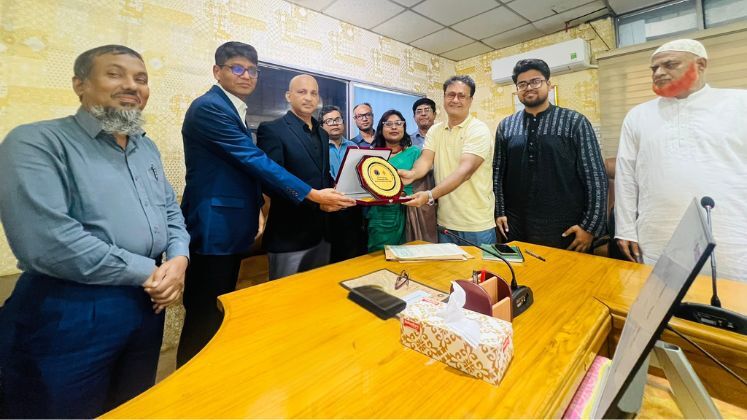
The Bangladesh Handloom Board (BHB) and the Heritage Research and Professional Institute (HRPI) have signed a Memorandum of Understanding (MoU) in Dhaka to strengthen collaboration in handloom research, training, and heritage fashion development.
At the signing ceremony, BHB Chairman Abu Shammed Siddiquei said the agreement would open new opportunities for research-driven innovation in the sector, safeguarding traditional crafts while making them competitive in global markets. He noted that the partnership will connect artisans and academic institutions to create skilled manpower and sustainable solutions for the industry.
Chief Planning Officer Ayub Ali outlined the prospects of the MoU, including collaborative training modules, sustainable production practices, and global marketing strategies aimed at diversifying handloom products and ensuring long-term growth. BHB Member Engineer (Textiles) Monjurul Islam presented a technical paper emphasising the need for skill-based training, modern weaving technologies, and eco-friendly dyeing methods to expand the industry while preserving its heritage.
Representing HRPI, Founder Professor Nusrat Jahan Nipa said the institute plans to expand handloom research nationally and internationally by working with universities, cultural organisations, and textile experts. HRPI Director Hamidur Rahman highlighted the role of research, consultancy, and entrepreneurship in modernising handloom businesses, while Director and Benaroshi artist Shamim Akter stressed the importance of product diversification by blending traditional weaving with contemporary fashion.
The partnership aims to establish structured training programs, develop academic modules, foster research collaborations, explore product diversification, and promote sustainable practices. Both institutions expressed optimism that the collaboration will help preserve Bangladesh’s cultural heritage while driving innovation and strengthening the country’s presence in the global heritage fashion market.






